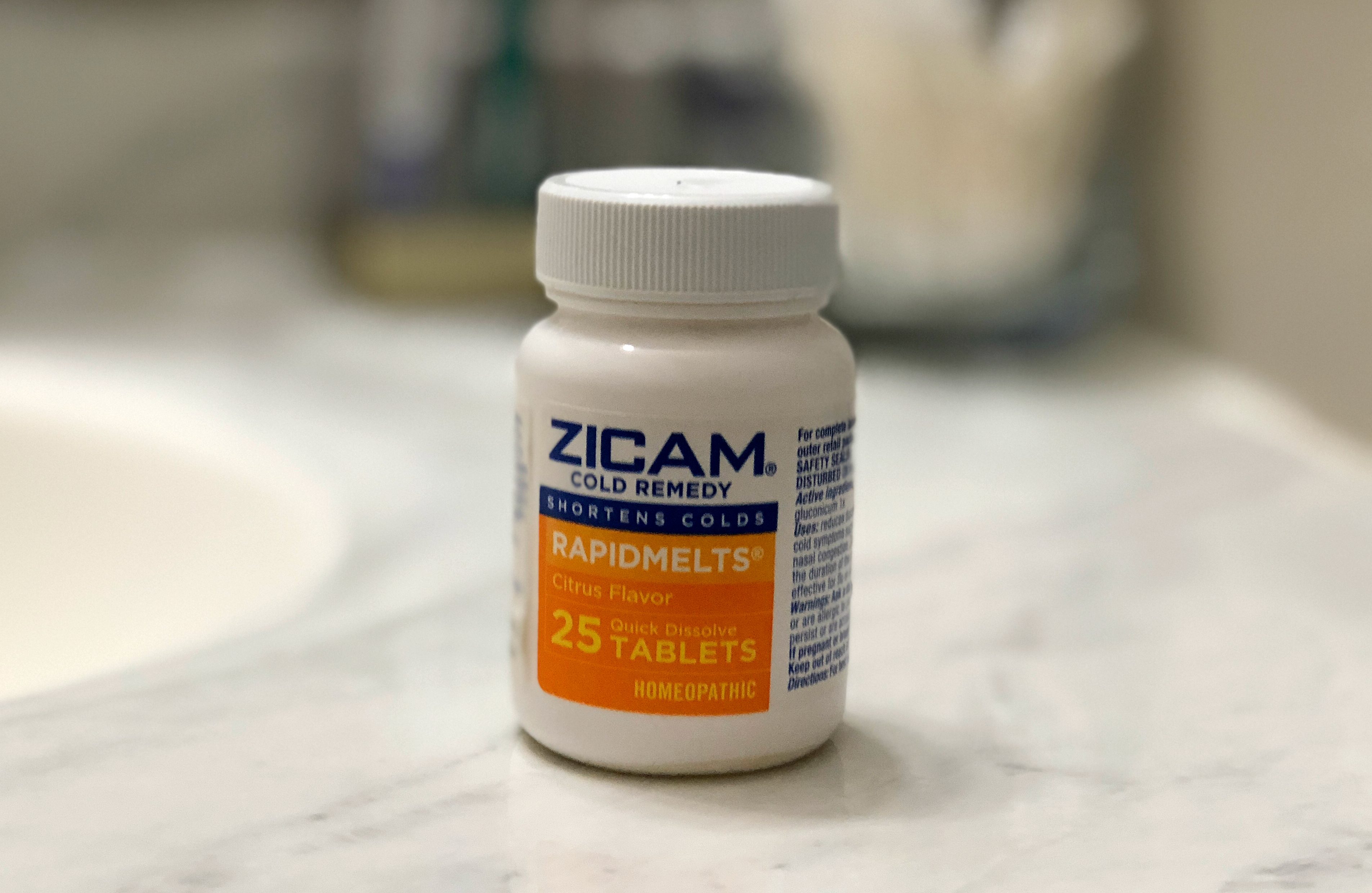Last Updated on January 6, 2025
Zicam is not recommended while pregnant, as there is not enough research to determine its safety during pregnancy. Pregnant women should consult with their healthcare provider before taking any medication or supplement.
Pregnancy is a time when many women experience health issues, such as cold and flu symptoms. Zicam is a popular medication used to alleviate cold and flu symptoms, but some are skeptical about its safety during pregnancy. Zicam contains zinc, an essential mineral that boosts the immune system and helps fight off viruses. However, there is a lack of research to determine the safety of zicam during pregnancy. As a result, healthcare providers usually advise pregnant women to avoid this medication and instead opt for alternative remedies like rest, hydration, and natural remedies such as honey and ginger. It is always important to consult with a healthcare provider before taking any medication or supplement while pregnant to ensure your and your baby’s safety.

Credit: hip2save.com
Related: Can You Eat Burrata When Pregnant?
Understanding Zicam
If you’re pregnant, you might be wondering whether taking zicam is a safe option. Zicam is a popular over-the-counter cold and flu remedy that is used by many people. However, its safety during pregnancy is unclear. In this section, we will explore the key points about zicam, its active ingredients, and the different forms it can be taken in.
What Is Zicam?
- Zicam is an over-the-counter medication that is used to relieve cold and flu symptoms.
- It contains various active ingredients that work to reduce congestion, relieve coughs and sore throats, and decrease the duration of your symptoms.
The Active Ingredients Of Zicam
- Zinc is the primary active ingredient in zicam. It works by reducing the duration and severity of cold symptoms.
- Zicam also contains various herbs, vitamins, and minerals, such as echinacea and vitamin c.
- Homeopathic ingredients in zicam are generally considered safe as they are diluted to such a degree that they do not pose any risk.
The Forms Zicam Can Be Taken In, And Their Safety During Pregnancy
- Zicam can be taken as lozenges, oral mist, nasal spray, and nasal swabs.
- The lozenges and oral mist are considered safe for use during pregnancy, although you should consult your doctor before taking them.
- However, the safety of nasal sprays and swabs is not clear, and the fda has issued a warning against the use of zinc-containing nasal products, as they could cause a loss of the sense of smell.
- It’s always important to read the label of any medication before taking it during pregnancy and consult with your healthcare provider.
The safety of zicam during pregnancy is unclear, and caution should always be used. If you are unsure about whether to take zicam, talk to your doctor before using it. Remember that there are alternative remedies and natural treatments you can consider that may offer relief from cold and flu symptoms.
Is Zicam Safe During Pregnancy?
Can You Take Zicam While Pregnant?
If you are pregnant and suffering from cold or flu-like symptoms, you may be wondering if you can take zicam. Zicam is an over-the-counter medication available for treating symptoms of the common cold, such as a runny or stuffy nose, sneezing, and sore throat.
But is it safe to take during pregnancy? Let’s find out.
Studies And Research Conducted On The Safety Of Zicam During Pregnancy
There have been limited studies on the use of zicam during pregnancy, so its safety is not yet fully established. However, the manufacturer of zicam does not recommend it for pregnant women. In a clinical study conducted on pregnant rats, it was found that the use of zicam during pregnancy caused harm to the fetal development.
Therefore, it is suggested that pregnant women should consult their doctor before using any medication that contains zinc, such as zicam.
Potential Risks And Side Effects Of Using Zicam During Pregnancy
Although zinc, the main ingredient in zicam, is essential for human health, excessive doses of zinc supplementation can be harmful. When taken in excess amounts, zinc builds up in the body and interferes with the absorption of other important minerals like copper, leading to health complications.
Using zicam during pregnancy can also cause nasal irritation, burning, and temporary loss of smell.
Recommendations And Precautions Issued By Medical Professionals
- Pregnant women are advised not to take any medications without consulting their doctor first.
- If a pregnant woman needs to use zinc supplements, it should be taken in the recommended dose and only under the supervision of a doctor.
- Nasal sprays should be avoided during pregnancy, especially during the first trimester.
- If you experience cold or flu-like symptoms during pregnancy, it is important to get adequate rest, stay hydrated and have a balanced diet.
The safety of zicam during pregnancy has not been fully established, and its use should be avoided unless recommended by a doctor. Zinc, the main ingredient in zicam, is an essential nutrient for human health, but excessive amounts of zinc supplementation can be harmful to the body.
Pregnant women should consult their doctor before taking any medication, including zicam, and follow their recommendations for treatment.
Related: Can You Drink Liquid Iv While Pregnant?
Alternatives To Zicam During Pregnancy
Can You Take Zicam While Pregnant?
As a pregnant woman, you are more vulnerable to the common cold and flu viruses. However, taking medications, such as zicam, during pregnancy can be risky, as it may harm the baby. So, what are the alternatives to zicam during pregnancy?
Natural And Home Remedies To Alleviate Cold And Flu Symptoms
Here are a few natural and home remedies that can help to ease your cold and flu symptoms during pregnancy:
- Get plenty of rest and stay hydrated
- Use a humidifier or vaporizer to soothe your nasal passages
- Drink warm tea with honey and lemon to relieve sore throat
- Gargle with saltwater to reduce swelling and discomfort in the throat
- Add a few drops of eucalyptus oil to a bowl of hot water and inhale the steam
Over-The-Counter Medication That Is Safe For Use During Pregnancy
While it is always preferable to avoid medications during pregnancy, some over-the-counter drugs are considered safe for use by pregnant women.
- Acetaminophen (e. G.
- Saline nasal spray or drops for clearing mucus from nasal passages
- Cough drops or lozenges for soothing sore throat
Always consult with your doctor before taking any medication, including over-the-counter drugs, during pregnancy.
Best Practices To Prevent Cold And Flu During Pregnancy
Prevention is better than cure; here are a few best practices that can help you stay healthy and prevent cold and flu during pregnancy:
- Wash your hands frequently with soap and water
- Avoid touching your face, particularly your nose and mouth
- Stay away from people who are sick
- Get vaccinated against the flu and whooping cough
By following these practices, you can reduce your risk of getting a cold or flu during pregnancy.
Taking zicam during pregnancy can be dangerous, and it’s best to avoid it. Instead, try natural remedies, over-the-counter medications, and preventive measures to stay healthy during this critical time. By following these guidelines, you can protect yourself and your baby from harm.
Related: Can You Drink Matcha While Pregnant?
Frequently Asked Questions
Q1: Is Zicam safe for use during pregnancy?
A1: Well, here’s the thing. Pregnancy can be quite a pickle and medications are like that one spicy ingredient that you’re unsure of adding to the mix. Zicam is no different. The company that makes Zicam suggests checking with your healthcare professional before using any of their products if you’re pregnant. You see, they haven’t conducted specific studies on the effects of Zicam during pregnancy. So, it’s a bit like stepping onto thin ice — better to check it out with an expert, right?
Q2: What might happen if I take Zicam while I’m pregnant?
A2: This is a million-dollar question, isn’t it? It’s a bit like asking how many licks it takes to get to the center of a Tootsie Pop — the world may never know. The actual risks of taking Zicam during pregnancy are not crystal clear because no extensive studies have been conducted on this specific scenario. As with any medication, potential side effects might occur, but it’s all in the realm of “might” and “maybe.” To navigate this grey area, it’s best to consult with your doctor.
Q3: Why should I consult with my healthcare provider before using Zicam during pregnancy?
A3: Think of it like going on a road trip without a map. You might end up somewhere completely different from where you intended to be! Your healthcare provider is like your GPS in the world of medication during pregnancy. They can guide you based on your specific health history and the current state of your pregnancy. It’s all about staying safe and sound, and who better than a professional to help you do that?
Q4: Are there any alternatives to Zicam if I’m suffering from cold symptoms while pregnant?
A4: Absolutely! When one door closes, another one opens, right? If you’re sniffly and sneezy and not sure about using Zicam, there are other remedies you might consider. Many of these are as natural as a warm summer’s day. Think steamy showers, rest, hydration, and chicken soup. There are also other medications that have been studied more extensively during pregnancy. So, like a buffet, there are options for you to choose from.
Q5: What’s the bottom line on Zicam and pregnancy?
A5: Well, here’s the lowdown. If you’re pregnant and battling a cold, it can feel like you’re caught between a rock and a hard place. Taking Zicam might be a tempting solution, but it’s a bit like wading into uncharted waters. There simply isn’t enough research to confidently say “go for it” or “absolutely not.” So, when in doubt, do what we do best as humans — ask for advice. In this case, that advice should come from your healthcare provider. It’s better to be safe than sorry, wouldn’t you agree?
Conclusion
Based on the evidence and studies reviewed, it is recommended that pregnant women should avoid taking zicam or any other zinc-containing products during pregnancy unless it is deemed necessary by their healthcare provider. The potential risks of zinc on the developing fetus far outweigh the benefits, especially in the first trimester.
Additionally, respiratory infections are common during pregnancy, and there are many safe and effective alternatives to manage the common cold symptoms. Pregnant women can modify their lifestyle, consume foods rich in vitamin c and d, and use saline nasal sprays to alleviate their symptoms.
Zicam is a powerful medication that can cause harm if misused. Therefore, it is recommended that you speak to your obstetrician or midwife before taking any medication or supplement during pregnancy to ensure the safety of yourself and your unborn child.
Remember, taking care of your health during pregnancy is paramount, and your healthcare provider can offer you guidance tailored to your individual needs.











